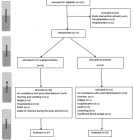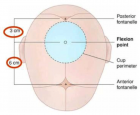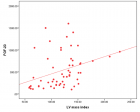Abstract
Review Article
Bruxism: Its multiple causes and its effects on Dental Implants: A Review
Devinder Preet Singh*, Sameera Singh Deo and Nitya Dogra
Published: 12 May, 2017 | Volume 2 - Issue 2 | Pages: 057-063
The rehabilitation of partially or completely edentulous patients with implant supported prostheses has been widely used, achieving high success rates. However, many studies consider the presence of bruxism as a contraindication for this treatment modality. The purpose of this study was to review the literature and identify risk factors in implant supported rehabilitation planning in subjects with bruxism. The rehabilitation of bruxers using implant supported prostheses, using implants with adequate length and diameter, as well as proper positioning, seems to be a reliable treatment with reduced risks of failure. Bruxism control through the use of a night guard by rigid occlusal stabilization appliance, relieved in the region of implants, is highly indicated. Although it is clear that implant supported rehabilitation of patients with bruxism requires adequate planning and follow-up, well-designed randomized controlled trials are needed to provide reliable evidence on the long-term success of this treatment modality.
Read Full Article HTML DOI: 10.29328/journal.johcs.1001012 Cite this Article Read Full Article PDF
Keywords:
Dental implants; Implant-supported dental prosthesis; Mouth rehabilitation; Tooth diseases
References
- Thorpy MJ. International classification of sleep disorders: diagnostic and coding manual. Rochester, MN: Allen Press. 1990; 142-185.
- Okeson JP. Orofacial pain. Guidelines for assessment, diagnosis, and management. Chicago, Il: Quintessence Publishing Co. Inc. 1996.
- Lobbezoo F, Van Der Zaag J, Visscher CM, Naeije M. Oral kinesiology: A new postgraduate programme in the Netherlands. J Oral Rehabil. 2004; 31: 192-198. Ref.: https://goo.gl/PWhg2E
- Lobbezoo F, Naeije M. Bruxism is mainly regulated centrally, not peripherally. J Oral Rehabil. 2001; 28: 1085-1091. Ref.: https://goo.gl/qt7T1Q
- Lobbezoo F, Brouwers JEIG, Cune MS, Naeije M. Dental implants in patients with bruxing habits. J Oral Rehabil. 2006; 32: 152-159. Ref.: https://goo.gl/56Lp4h
- Kato T, Thie NM, Montplaisir JY, Lavigne GJ. Bruxism and orofacial movements during sleep. Dent Clin North Am. 2001; 45: 657-684. Ref.: https://goo.gl/tHNomI
- Kato T, Dal-Fabbro C, Lavigne GJ. Current knowledge on awake and sleep bruxism: overview. Alpha Omegan. 2003; 96: 24-32. Ref.: https://goo.gl/OlGWjs
- Kato T, Thie NM, Huynh N, Miyawaki S, Lavigne GJ. Topical review: sleep bruxism and the role of peripheral sensory influences. J Orofac Pain. 2003; 17: 191-213. Ref.: https://goo.gl/o1t9JK
- De Laat A, Macaluso GM. Sleep bruxism as a motor disorder. MovDisord. 2002; 17: 67-69. Ref.: https://goo.gl/AAaMNx
- Lavigne GJ, Kato T, Kolta A, Sessle BJ. Neurobiological mechanisms involved in sleep bruxism. Crit Rev Oral Biol Med. 2003; 14: 30-46. Ref.: https://goo.gl/tnhjGt
- Sari S, Sonmez H. The relationship between occlusal factors and bruxism in permanent and mixed dentition in Turkish children. J Clin Pediatr Dent. 2001; 25: 191-194. Ref.: https://goo.gl/BE46tA
- Giffin KM. Mandibular adaptive reposturing: the aetiology of a common and multifaceted autodestructive syndrome. Gen Dent. 2003; 51: 62-67. Ref.: https://goo.gl/rLUntN
- Manfredini D, Landi N, Romagnoli M, Bosco M. Psychic and occlusal factors in bruxers. Aust Dent J. 2004; 49: 84-89. Ref.: https://goo.gl/vyBFo0
- Manfredini D, Landi N, Tognini F, Montagnani G, Bosco M. Occlusal features are not a reliable predictor of bruxism. Minerva Stomatol. 2004; 53: 231-239. Ref.: https://goo.gl/OGVovS
- Chrcanovic BR, Kisch J, Albrektsson T, Wennerberg A. Bruxism and dental implant failures: a multilevel mixed effects parametric survival analysis approach. J Oral Rehabil. 2016; 43: 813-823. Ref.: https://goo.gl/ASDWbJ
- Chrcanovic BR, Kisch J, Albrektsson T, Wennerberg A. Bruxism and dental implant treatment complications: a retrospective comparative study of 98 bruxer patients and a matched group. Clin Oral Implants Res. 2016. Ref.: https://goo.gl/XQpJ88
- Demir A, Uysal T, Guray E, Basciftci FA. The relationship between bruxism and occlusal factors among seven- to 19-year-old Turkish children. Angle Orthod. 2004; 74: 672-676. Ref.: https://goo.gl/XFazdt
- Lavigne GJ, Rompre PH, Montplaisir JY. Sleep bruxism: validity of clinical research diagnostic criteria in a controlled polysomnographic study. J Dental Research. 1996; 75: 546-552. Ref.: https://goo.gl/SBDqVp
- Lavigne GJ, RomprePH, Montplaisir JY, Lobbezoo F. Motor activity in sleep bruxism with concomitant jaw muscle pain: a retrospective pilot study. Eur J Oral Sci.1997; 105: 92-95. Ref.: https://goo.gl/k6fjKy
- Manfredini D, Lobbezoo F. Relationship between bruxism and temporomandibular disorders: a systematic review of literature from 1998 to 2008. Oral Surg Oral Med Oral Pathol Oral Radiol Endod. 2010; 109: 26-50. Ref.: https://goo.gl/ahWgdb
- Johansson A, Johansson AK, Omar R, Carlsson GE. Rehabilitation of the worn dentition. J Oral Rehabil. 2008; 35: 548-566. Ref.: https://goo.gl/7ZEFXN
- Lobbezoo F, van der Zaag J, Naeije M. Bruxism: its multiplecauses and its effects on dental implants - an updated review. J Oral Rehabil. 2006; 33: 293-300. Ref.: https://goo.gl/MVKL6T
- Williamson EH, Lundquist DO. Anterior guidance: its effect on electromyographic activity of temporal and masseter muscles. J Prosthet Dent. 1983; 49: 816-823. Ref.: https://goo.gl/p58mhD
- Dorland’s Illustrated Medical Dictionary. WB Saunders Co: Philadelphia, Pa; 1988.
- Kois J. Manual on Functional Occlusion. Self-published: Seattle, Wash; 2002.
- Glaros AG, Rao SM. Effects of bruxism, a review of the literature. J Prosthet Dent. 1977; 38: 149-157. Ref.: https://goo.gl/Q4CKZR
- Misch CE. Dental evaluation factors of stress. In: CE Misch, ed. Contemporary Implant Dentistry. 2nd ed. St Louis, Mo: CV Mosby; 1999.
- Bidez MW, Misch CE. Clinical biomechanics in implant dentistry. In: Misch CE, ed. Contemporary Implant Dentistry. St Louis, Mo: CV Mosby; 1999: 303-316.
- Van der Zaag J, Lobbezoo F, Van der Avoort PG, Wicks DJ, Hamburger HL et al. Effects of pergolide on severe sleep bruxism in a patient experiencing oral implant failure. J Oral Rehabil.2007; 34: 317-322. Ref.: https://goo.gl/QCXiZp
- Esposito M, Grusovin MG, Achille H, Coulthard P, Worthington HV. Interventions for replacing missing teeth: different times for loading dental implants. Cochrane Database Syst Rev. 2009; 21. Ref.: https://goo.gl/vgj6Ix
- Misch CE. The effect of bruxism on treatment planning for dental implants. Dent Today. 2002; 21: 76-81. Ref.: https://goo.gl/70v08u
- Tu¨rp JC, Komine F, Hugger A. Efficacy of stabilization splints for the management of patients with masticatory muscle pain: a qualitative systematic review. Clin Oral Investig .2004; 8: 179-195. Ref.: https://goo.gl/GUJd7Q
- Okeson JP. The effects of hard and soft occlusal splints on nocturnal bruxism. J Am Dent Assoc. 1987; 114: 788-791. Ref.: https://goo.gl/7Yv1RC
- List T, Axelsson S. Management of TMD: evidence from systematic reviews and meta-analyses. J Oral Rehabil. 2010; 37: 430-451. Ref.: https://goo.gl/B6OkoA
- Thie NM, Kato T, Bader G, Montplaisir JY, Lavigne GJ. The significance of saliva during sleep and the relevance of oromotor movements. Sleep Med Rev. 2002; 6: 213-227. Ref.: https://goo.gl/KNaesf
- Narita N, Funato M, Ishii T, Kamiya K, Matsumoto T. Effects of jaw clenching while wearing an occlusal splint on awareness of tiredness, biteforce and EEG power spectrum. J Prosthodont Res. 2009; 53: 120-125. Ref.: https://goo.gl/qEkV0I
- Sarmento HR, Dantas RV, Pereira-Cenci T, Faot F. Elements of Implant-Supported Rehabilitation Planning in Patients with Bruxism. J Craniofac Surg. 2012; 23: 1905-1909. Ref.: https://goo.gl/YbcqGa
- Lindquist LW, Rockler B, Carlsson GE. Bone resorption around fixtures in edentulous patients treated with mandibular fixed tissue-integrated prostheses. J Prosthet Dent.1988; 59: 59-63. Ref.: https://goo.gl/qnTEIM
- Misch C. Dental evaluation factors of stress. In: Contemporary Implant Dentistry 2nd ed. St Louis: Mosby, 1999.
Figures:

Figure 1
Similar Articles
-
Bruxism: Its multiple causes and its effects on Dental Implants: A ReviewDevinder Preet Singh*,Sameera Singh Deo,Nitya Dogra. Bruxism: Its multiple causes and its effects on Dental Implants: A Review . . 2017 doi: 10.29328/journal.johcs.1001012; 2: 057-063
-
Twin-stage technique for occlusal rehabilitation of a mutilated dentition – A case reportAmarjeet Gambhir*,Gita Rani. Twin-stage technique for occlusal rehabilitation of a mutilated dentition – A case report. . 2020 doi: 10.29328/journal.johcs.1001031; 5: 006-010
-
Success, Survival and Prognostic Factors in Implant Prosthesis: Experimental StudyEpifania Ettore*, Pietrantonio Maria, Christian Nunziata, Ausiello Pietro. Success, Survival and Prognostic Factors in Implant Prosthesis: Experimental Study. . 2023 doi: 10.29328/journal.johcs.1001045; 8: 024-028
-
Hygiene and Care Protocols for Implant-supported Dental Prostheses in Patients with DiabetesHakob Khachatryan, Emma Boshnaghyan, Sevak Papoyan, Gagik Hakobyan*. Hygiene and Care Protocols for Implant-supported Dental Prostheses in Patients with Diabetes. . 2024 doi: 10.29328/journal.johcs.1001047; 9: 009-014
-
Texture Analysis of Hard Tissue Changes after Sinus Lift Surgery with Allograft and XenograftMohammad Azimzadeh, Farzad Esmaeili, Narges Bayat, Kasra Rahimipour, Amir Ebrahimpour Tolouei*. Texture Analysis of Hard Tissue Changes after Sinus Lift Surgery with Allograft and Xenograft. . 2024 doi: 10.29328/journal.johcs.1001049; 9: 019-022
Recently Viewed
-
The effect of frequency of sexual intercourse on coronary artery diseaseMehdi Karasu*,Özkan Karaca,Mehmet Ali Kobat,Tarık Kıvrak,Mehmet İkbal İpek. The effect of frequency of sexual intercourse on coronary artery disease. Arch Vas Med. 2022: doi: 10.29328/journal.avm.1001015; 6: 001-004
-
A Case Report on Paradoxical EmboliYou Li* and Jason Wheeler. A Case Report on Paradoxical Emboli. Arch Vas Med. 2024: doi: 10.29328/journal.avm.1001019; 8: 004-007
-
Precision and personalized vaccines needed to face COVID-19 pandemicDahmani Fathallah M*. Precision and personalized vaccines needed to face COVID-19 pandemic. Insights Clin Cell Immunol. 2021: doi: 10.29328/journal.icci.1001017; 5: 003-003
-
NAD⁺ Biology in Ageing and Chronic Disease: Mechanisms and Evidence across Skin, Fertility, Osteoarthritis, Hearing and Vision Loss, Gut Health, Cardiovascular–Hepatic Metabolism, Neurological Disorders, and MuscleRizwan Uppal,Umar Saeed*,Muhammad Rehan Uppal. NAD⁺ Biology in Ageing and Chronic Disease: Mechanisms and Evidence across Skin, Fertility, Osteoarthritis, Hearing and Vision Loss, Gut Health, Cardiovascular–Hepatic Metabolism, Neurological Disorders, and Muscle. Ann Clin Endocrinol Metabol. 2026: doi: 10.29328/journal.acem.1001032; 10: 001-009
-
Physical Performance in the Overweight/Obesity Children Evaluation and RehabilitationCristina Popescu, Mircea-Sebastian Șerbănescu, Gigi Calin*, Magdalena Rodica Trăistaru. Physical Performance in the Overweight/Obesity Children Evaluation and Rehabilitation. Ann Clin Endocrinol Metabol. 2024: doi: 10.29328/journal.acem.1001030; 8: 004-012
Most Viewed
-
Impact of Latex Sensitization on Asthma and Rhinitis Progression: A Study at Abidjan-Cocody University Hospital - Côte d’Ivoire (Progression of Asthma and Rhinitis related to Latex Sensitization)Dasse Sery Romuald*, KL Siransy, N Koffi, RO Yeboah, EK Nguessan, HA Adou, VP Goran-Kouacou, AU Assi, JY Seri, S Moussa, D Oura, CL Memel, H Koya, E Atoukoula. Impact of Latex Sensitization on Asthma and Rhinitis Progression: A Study at Abidjan-Cocody University Hospital - Côte d’Ivoire (Progression of Asthma and Rhinitis related to Latex Sensitization). Arch Asthma Allergy Immunol. 2024 doi: 10.29328/journal.aaai.1001035; 8: 007-012
-
Causal Link between Human Blood Metabolites and Asthma: An Investigation Using Mendelian RandomizationYong-Qing Zhu, Xiao-Yan Meng, Jing-Hua Yang*. Causal Link between Human Blood Metabolites and Asthma: An Investigation Using Mendelian Randomization. Arch Asthma Allergy Immunol. 2023 doi: 10.29328/journal.aaai.1001032; 7: 012-022
-
An algorithm to safely manage oral food challenge in an office-based setting for children with multiple food allergiesNathalie Cottel,Aïcha Dieme,Véronique Orcel,Yannick Chantran,Mélisande Bourgoin-Heck,Jocelyne Just. An algorithm to safely manage oral food challenge in an office-based setting for children with multiple food allergies. Arch Asthma Allergy Immunol. 2021 doi: 10.29328/journal.aaai.1001027; 5: 030-037
-
Snow white: an allergic girl?Oreste Vittore Brenna*. Snow white: an allergic girl?. Arch Asthma Allergy Immunol. 2022 doi: 10.29328/journal.aaai.1001029; 6: 001-002
-
Cytokine intoxication as a model of cell apoptosis and predict of schizophrenia - like affective disordersElena Viktorovna Drozdova*. Cytokine intoxication as a model of cell apoptosis and predict of schizophrenia - like affective disorders. Arch Asthma Allergy Immunol. 2021 doi: 10.29328/journal.aaai.1001028; 5: 038-040

If you are already a member of our network and need to keep track of any developments regarding a question you have already submitted, click "take me to my Query."

















































































































































